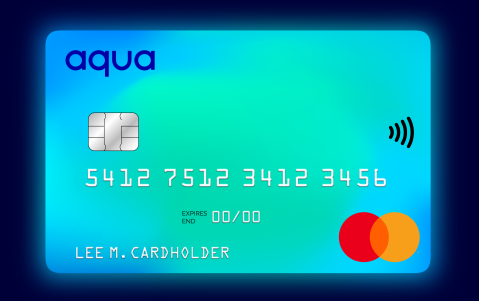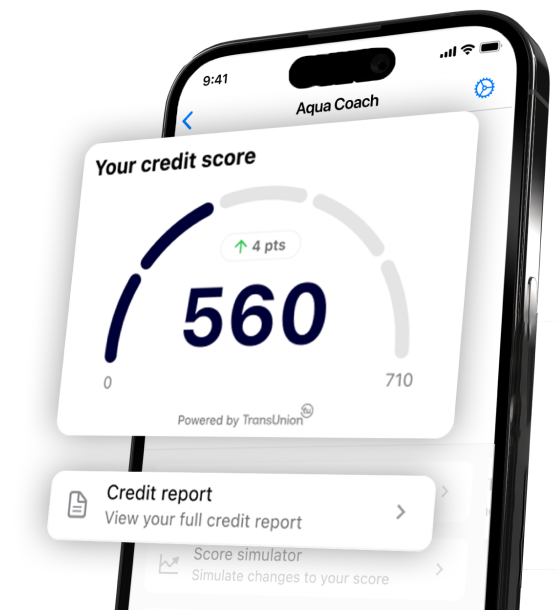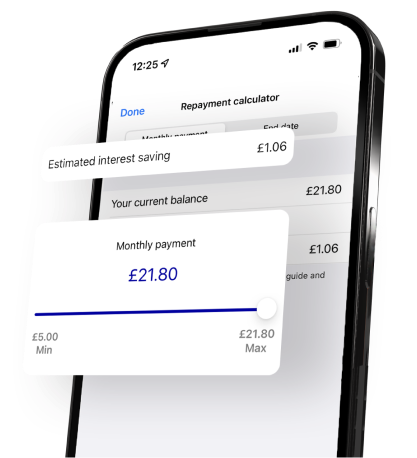Aqua Classic
Credit cards for bad credit
A credit card to help repair bad credit
Check your eligibility and get a response in 60 seconds with no impact to your credit score
Smart credit limits from £250 - £1500 that could adjust as we get to know you
Build better credit with expert support in the Aqua app

What are the benefits of an Aqua classic card?
Get the smart way to build better credit. Aqua Classic is the credit card for bad credit or poor credit history, that gives you the power to improve your credit score. Backed by our expert support, personalised credit limits & secure app that guides you on your credit building journey.
Build your credit score
- Build your credit score, if you manage your account and finances well
- Get free access to your credit score in the Aqua app
- Get expert support from Aqua Coach with hints & tips to help improve your score

Safe and widely accepted
- Get 24/7 fraud protection to keep your account safe
- Get a response in 60 seconds with no impact on your credit score
- As a Mastercard, Aqua Classic is accepted at over 35 million places worldwide

Smart credit limits
- We give you a personalised credit limit starting from £250 - £1500
- Your credit limit adjusts as we get to know you and could even grow if you manage your account well

Hear from our customers
Everybody has their own credit-building journey. Hear directly from the people who’ve used Aqua to help them along the way.
Aqua Classic FAQs
- Aqua Coach – our free credit builder tool in the Aqua app
- A great mobile app to keep you in control 24/7
- Text reminders to keep you on track
- Award-winning support from our UK-based call centre
You can reduce your credit limit at any time by calling customer services. You can also choose how you would like us to manage your credit limit preferences.
Am I eligible to apply for an Aqua Classic card?
You can apply for an Aqua card as long as you:
- Aged 18 and over and have a permanent UK address.
- Haven’t been registered bankrupt in the past 18 months and don’t have ongoing bankruptcy proceedings against you.
- Have a current UK bank or building society account.
- Haven’t received a County Court Judgement (CCJ) in the past 12 months.
- Don’t already have an Aqua card and haven’t had taken out an Bip, Marbles, Opus or Fluid card in the past 12 months.
What is bad credit?
Bad credit is usually a way of describing having a low credit score, due to either a history of using credit poorly or not having built up much of a credit history. Having a bad credit history is one of the main reasons people are turned down for credit cards, loans, and even bank accounts.
If you have a bad credit history, it’s important to remember that millions of people in the UK are in the same category, so you’re not alone and you can get help to fix it.
It’s also important to remember that nobody has a single credit ‘score’ that all lenders look at to decide whether to give you credit. Each lender will carry out its own assessment based on your credit history and decide based on their own criteria, so it’s still possible for you to get credit and use it responsibly.
Let’s look at the two situations which usually result in it being more difficult for people to get credit.

A bad credit history
If you haven’t stuck to the terms of credit agreements in the past, lenders might decide that it’s a risk to give you credit.
Ways that people get a bad credit history from irresponsible credit card use are:
- A late or missed payment
- Going over their credit limit
For example, if you’ve made a late payment, or missed a payment altogether on your credit card, other lenders are likely to think that you might miss payments and decide not to give you credit. There are lots of steps you can take to start improving your credit score and options for getting credit while you have bad credit. At Aqua, we’ll do our best to help you with both.

No credit history
If you’ve never borrowed money, lenders don’t have much information on which to judge whether you’ll manage your credit well.
Using credit responsibly is the most important factor in building a good credit history, so having no history of using credit can be just as much of an issue as a history of using credit poorly.

What’s the difference between an eligibility check and an application?
An eligibility check – like our SafeCheck – tells you whether the card company is likely to say ‘yes’ to your application, but it doesn’t leave a hard check on your credit report and doesn’t commit you to applying for the card.
This means that you know whether you’re safe to apply, without having to worry about damaging your chances of getting other credit in future.
A full application, on the other hand, does leave a mark on your report. That’s why it’s best not to fill in lots of applications with different companies. If in doubt, always check your eligibility first.

Can I apply for a credit card if I have bad credit?
The short answer is ‘yes’. The first step is to decide which card is right for you.
If you have a bad credit history or haven’t applied for a credit card before, it can be tempting to fill out lots of applications in the hope that at least one of them will be successful. But this is exactly the wrong thing to do.
Each full application is logged on your credit report, so the more you apply and are turned down, the more likely you are to keep getting turned down. That’s why you need to pick a card that’s designed for your circumstances and offers an eligibility check – sometimes called a ‘soft’ check – up front.
Bad credit FAQs
Having a bad score may make lenders concerned that you’re not able to manage credit as well as they would like. This could make it more difficult and/or expensive for you to get credit – but, the good news is, it’s possible to improve your credit score (see ‘Can bad credit be fixed?’ below).
If you use your card responsibly, including by making all your repayments on time and staying within your credit limit, then over time this will help you build up a history of good credit. Your improved credit score may then help you be accepted for other types of credit that you can apply for – from credit cards and loans to mortgages and other large purchases.
How to fix a bad credit score
If you have a bad credit score, getting a credit card and managing it well can be a great way to improve it. There are a few other easy things you can do to help improve your credit score, too.
Check that you’re on the electoral register
The electoral register is an official record that lenders can use to confirm you’re who you say you are. That’s why it’s important to keep your name on it, even if you don’t plan to vote.
Always pay bills and make debt repayments on time
If you’re late with a payment – even by just a day or two – your credit score can suffer. A missed payment can sit on your credit record for up to seven years.
Make sure your credit record is up to date
Credit records can sometimes contain mistakes – and these can affect your credit score. It’s worth checking yours regularly to make sure it’s right.
Keep old accounts open and build your credit history
If you have long-standing credit accounts that have been managed well, consider keeping them open. This can show you’ve been a reliable borrower in the past which is a good sign to lenders.
Don’t apply for credit too often
Lenders get nervous if they see a lot of applications for credit on your credit record within a six-month period. That makes them less likely to accept you.
Be a responsible borrower
Managing your existing credit accounts well is quite simply one of the surest ways to boost your credit score – helping you get the credit you want in future.
Get more help improving bad credit
Slide 1 of 3Check out our range of guides with helpful tips and advice to get you on the path to building better credit.

How long does it take to improve your credit ...
Get tips and advice on how to improve your credit score.
Jide Davies

How to get a credit card with bad credit
Learn how to choose and apply for a credit card when you have bad credit.
Victoria Smith

How to fix bad credit
In this guide you’ll find out how to improve bad credit and how quickly you can do it.
Vanessa Stewart